He came too late.
This is true for people who know Mu Xin, people who read Mu Xin, himself, and Chinese writing.
When he was known by more people, he was already an elder. People were willing to respect him as a teacher and listen to his slow lectures. Later, he had more readers, and “Memoirs of Literature” made him popular among young people. Love, meet and hate late. But for Mu Xin, who envied Zhang Ailing’s youthful fame, she waited until she was 79 years old to publish a book in the mainland for the first time. The original “Reflection of Columbia” did not spark a craze for reading. It was just a deserted literary work, and he still yearned to be seen by more people. However, when the “Literary Memoirs” that made him a phenomenon was published, it was already 2013, and he had already passed away.
When more of his works were published, people realized that perhaps he was too late for the entire Chinese writing. The kind of clean words that have not been affected by any cultural movement in the last century are naturally presented to readers. Perhaps in the future, he will be more late-a fair evaluation of his literary concepts, a true understanding of his works, the effort spent in books such as “The Book of Songs”, more manuscripts and paintings that have not yet been published… In modern times, his sluggish posture is incompatible with the fast pace of social life, but it is also this incompatibility that attracts more people to follow his shadow and move forward quietly and slowly.
This article is from B08 of “The Beijing News Book Review Weekly” on December 17th, the topic “Late Man-The 10th Anniversary of Mu Xin’s Death”.
At the age of eight, Mu Xin began to learn Chinese ink painting formally as a teacher, and left Wuzhen at the age of seventeen to apply for the art school in Hangzhou. According to him, there are two reasons for leaving Wuzhen, one is to study art, and the other is to escape marriage. During his stay in Hangzhou, Mu Xin once switched to learning impressionist oil painting. He described this in “The Banquet of Yuli”-“What’s even more funny is that I thought I was out of the process of’wandering, losing love’ and struggling. Doesn’t the artist have to toss like this, work hard, and then become famous in one fell swoop… Soon, I abandon my gowns and shoes, take suits and leather shoes, the house full of paint smells, painting tools and materials are messy, no wonder the old master wants to come so in his letter to my brother-in-law A sentence of’showy but not real'”. In the same year, Mu Xin held his first art exhibition.
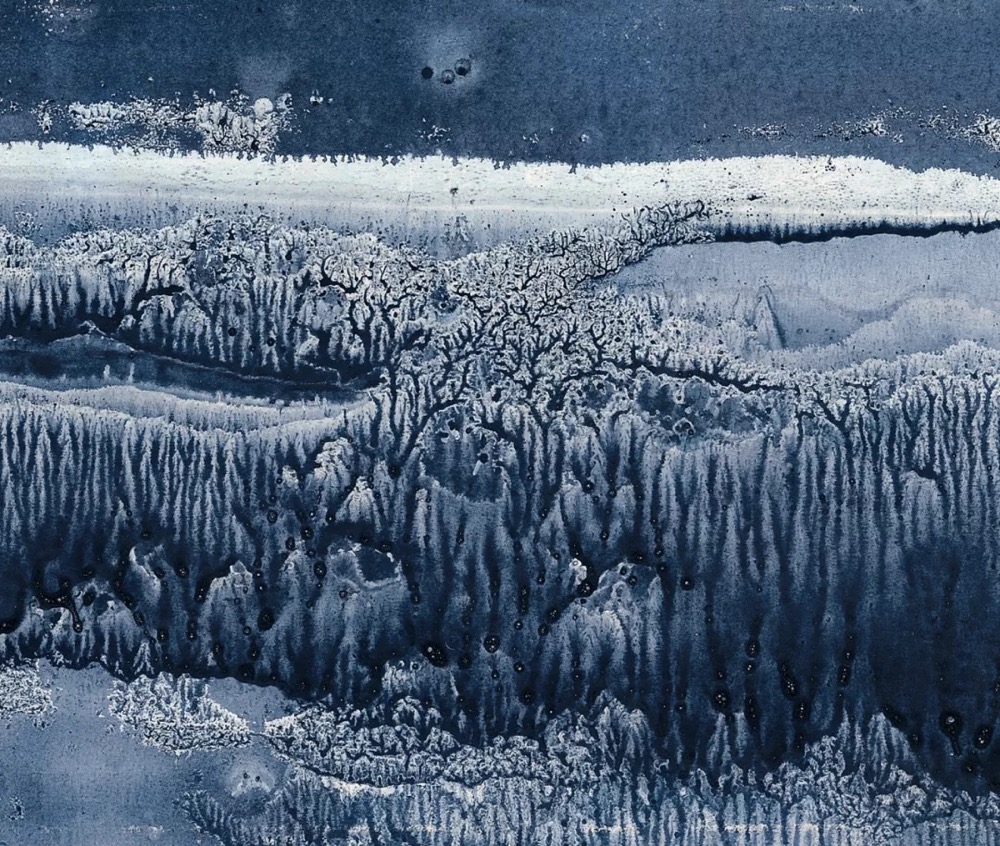
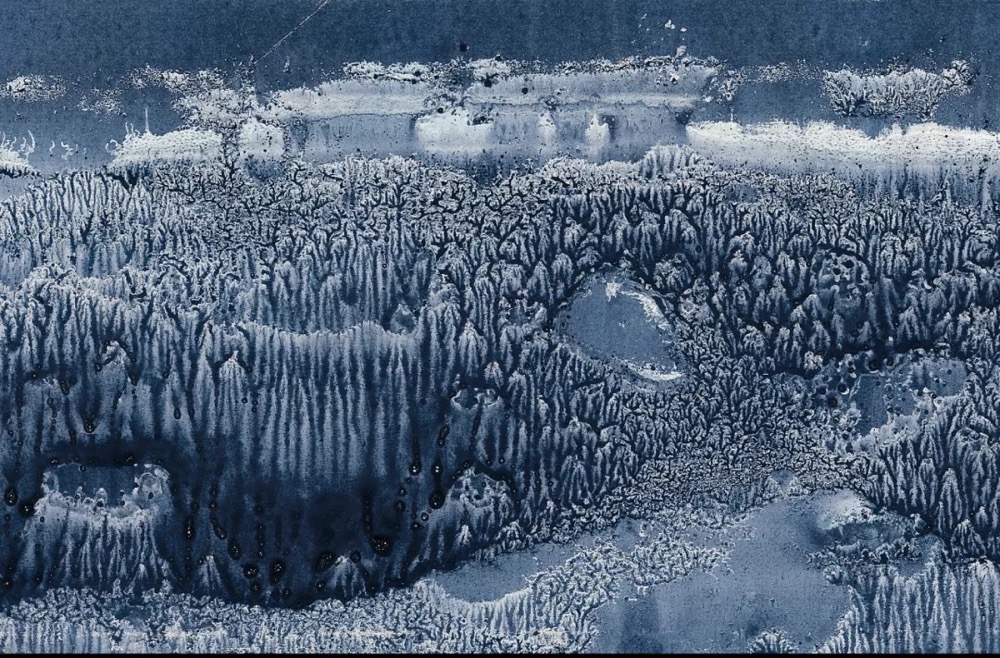

Part of “Spring Night”, 1990.
In 1946, Mu Xin entered the Shanghai Academy of Fine Arts and continued to study painting. Later, he was expelled from Shanghai Academy of Fine Arts for participating in the student movement. In 1950, Mu Xin visited the home of artist Lin Fengmian for the first time. Since then, Mu Xin’s painting style has begun to change. After entering the arts and crafts field, Mu Xin’s transfer painting style has basically taken shape. In the memoirs of the son of Mu Xin’s friend, Mu Xin once described his harshness to artistic creation, “Mr. Mu Xin admired Lin Fengmian very much. At that time, his composition style resembled Mr. Lin. I saw him paint and he treated himself The works of ”are extremely strict, and those works that are not satisfied will be destroyed on the spot!” When a reporter from the Hong Kong “Zhong Bao” monthly interviewed Mu Xin, he also praised Mu Xin’s paintings, “We have learned that he is a strange person who paints A marvelous painting, when I see this masterpiece in a book, it is completely beyond our imagination. Hua Yan is profound and unpredictable, unable to distinguish what is inevitable from accident, what is appearance and what is concept, I just feel that Awesome, Xiao Ran, Pianran, Tao Ran, Yanran, Yanran…”.

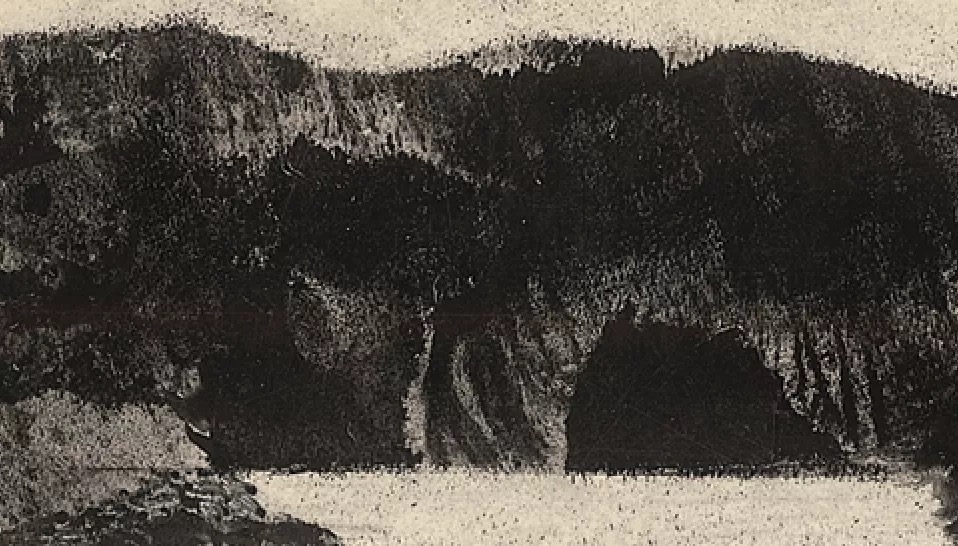

“Landscape Fu”, 1991.
Even so, in the United States, Mu Xin’s transfer painting market was not very good. After Chen Danqing met Mu Xin in New York, he tried to contact a gallery owner he knew to help Mu Xin sell his paintings, but there were not many buyers who knew the goods. However, there are also positive moments in the anecdotes related to the paintings. When Mu Xin went to the United States to apply for a visa, because she didn’t know her motive, she had no relatives, her marital status and age did not match, the visa was directly returned by the staff of the US consulate, and finally Mu Xin took out her own painting. After several staff members gathered in a circle to discuss the appreciation, their attitudes immediately changed, believing that Mu Xin was an artistic talent that the United States needed, and immediately approved his visa.
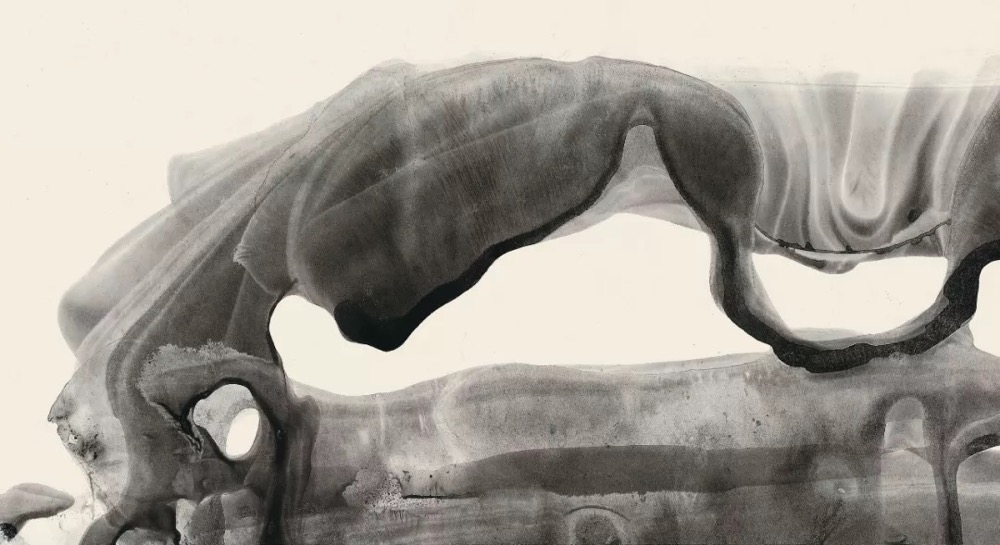
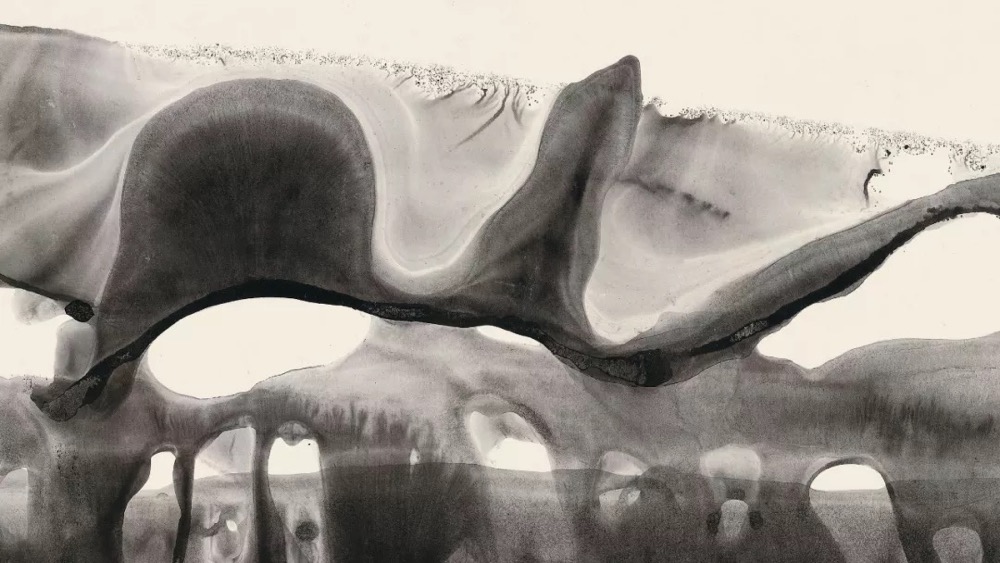
Part of “Sunny Wind”, 1999.
The paintings left by Mu Xin are also on display at the Mu Xin Art Museum in Wuzhen today. When asked about Mu Xin’s thoughts on the art museum during his lifetime, Mu Xin had only one request, that is, that the future art museum can display parts of his huge paintings in space. He very much hopes that his works can be enlarged so that viewers can observe the parts and details in the paintings.

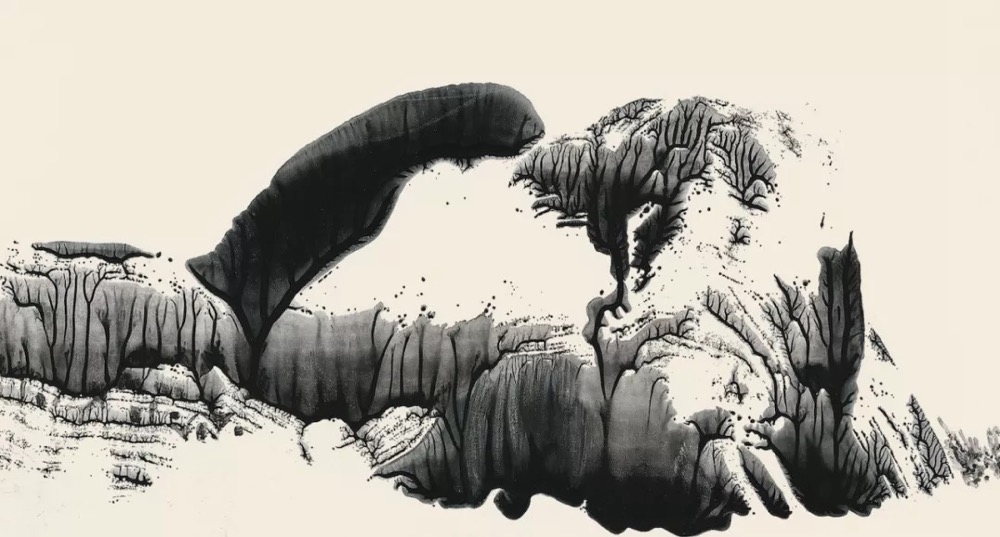
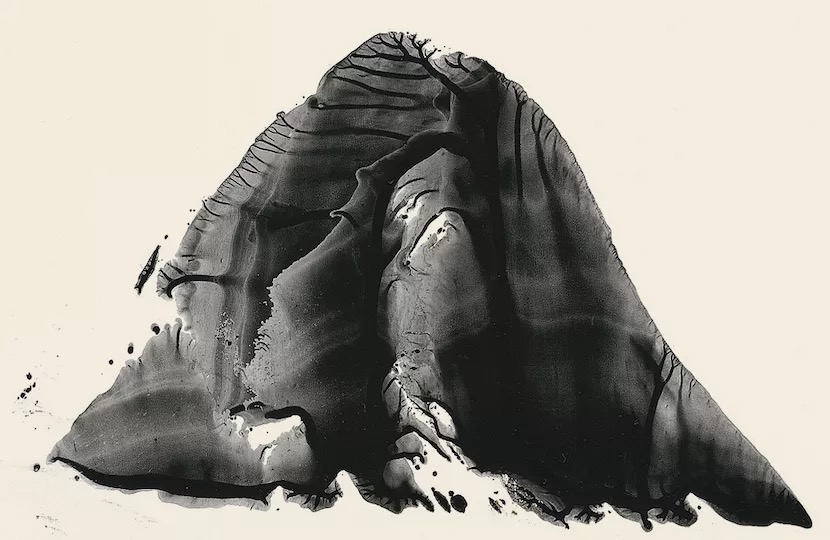
Part of “Five Mountains”, 2003.
Author | Miyako
Edit | Miyako Li Yongbo Qingqingzi
Proofreading | Xue Jingning
.
